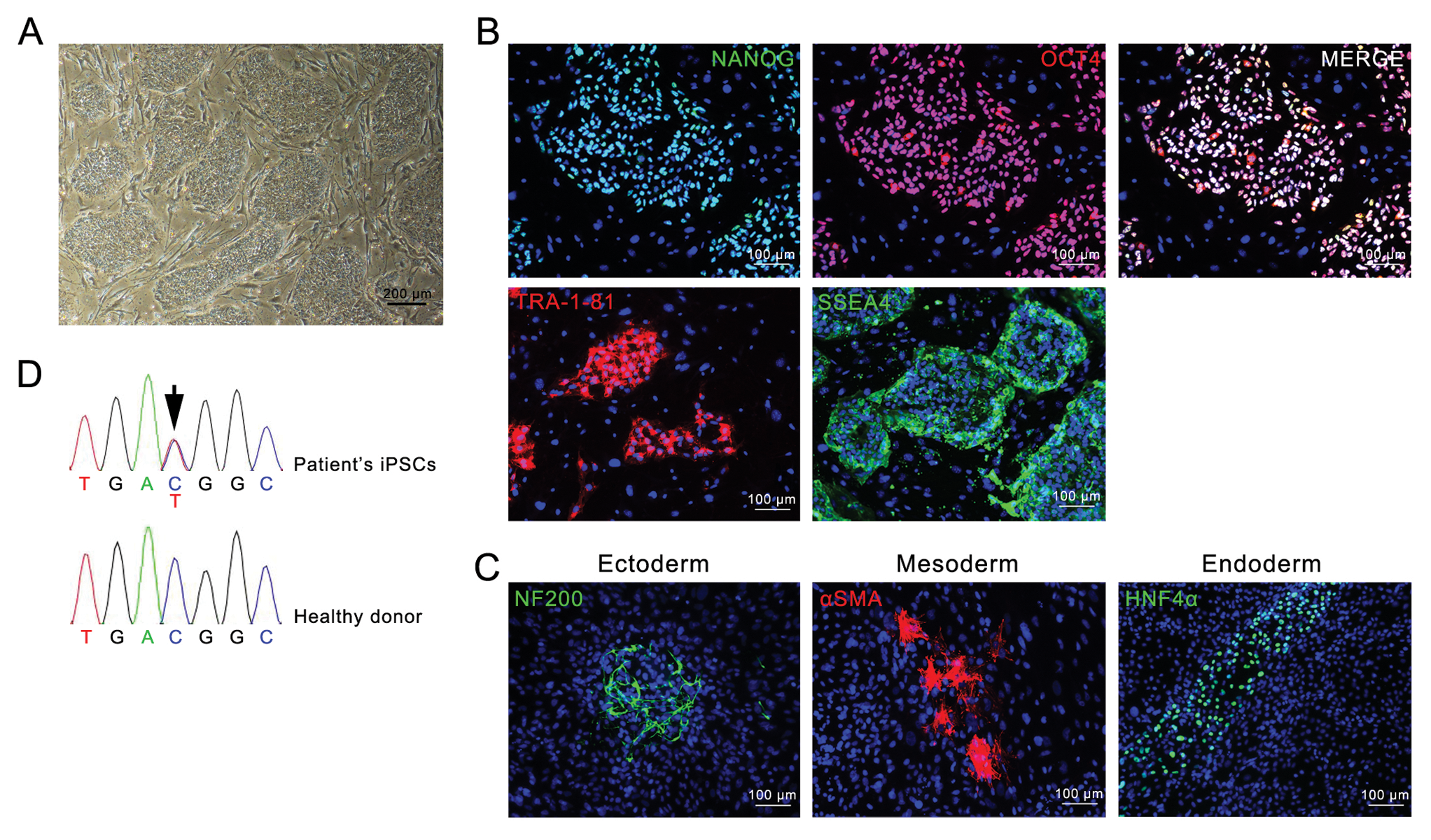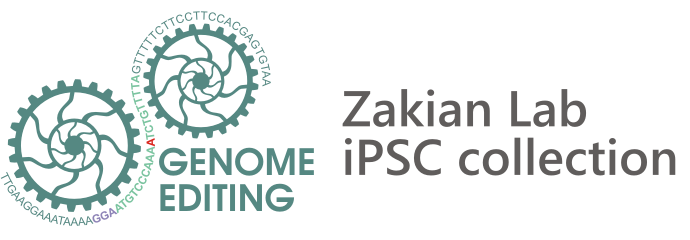Long QT syndrome
Long QT syndrome (LQTS) is an arrhythmic disease leading to an increased risk of ventricular tachycardia and sudden death. The congenital form of the syndrome is caused by mutations in proteins involved in cardiomyocyte ionic channel functioning. Using cardiomyocytes derived from patient-specific iPSCs is the most promising approach to study LQTS molecular mechanisms and to search for effective therapy methods. Using episomal vectors, we generated iPSC lines from fibroblasts of two LQTS patients carrying p.V254M mutation in KCNQ1 and p.T613M mutation in KCNH2. The iPSC lines can be used for modeling long QT syndrome types 1 and 2 that are the most common forms of the congenital LQTS.

Long QT syndrome (LQTS) is an arrhythmic disease leading to an increased risk of ventricular tachycardia and sudden death. The congenital form of the syndrome is caused by mutations in proteins involved in cardiomyocyte ionic channel functioning. Using cardiomyocytes derived from patient-specific iPSCs is the most promising approach to study LQTS molecular mechanisms and to search for effective therapy methods. Using episomal vectors, we generated iPSC lines from fibroblasts of two LQTS patients carrying p.V254M mutation in KCNQ1 and p.T613M mutation in KCNH2. The iPSC lines can be used for modeling long QT syndrome types 1 and 2 that are the most common forms of the congenital LQTS.
